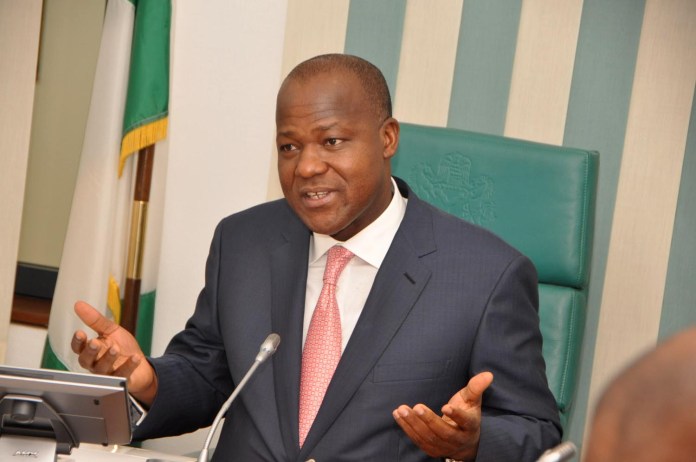- Dogara Harps on Investment in Security, Charges Military to Guard Democracy
Speaker of the House of Representatives, Hon. Yakubu Dogara monday challenged the Nigerian security forces to remain focused on intelligence gathering and timely deployment of information as a means of combating terrorism, kidnapping and other crimes in the country in order to protect Nigeria’s democracy.
Noting that any nation which fails to invest in security is bound to diminish, he said the National Assembly will do everything within the confines of our powers and within available national resources “to see that we appropriate more for the peace, order and good governance of this country.”
“It has happened, examples are replete, so we will not fail to invest in security,” he said.
Speaking at the Annual Conference for Nigerian Defence Attaches organised by the Chief of Defence Intelligence, the Speaker stressed that maintenance of law and order is the most important function in any society, noting that democracy thrives only when lives are secure.
He said: “But I believe that if we succeed in gathering effective and reliable intelligence that can be interpreted, we will always be ahead of the terrorists, of the kidnappers, and of all those who are threatening our peaceful coexistence. The work you do perhaps is the most important work that can be done in a democracy.”
“I have always maintained that terrorism is a global problem, and therefore, no single nation, no one nation should be left alone to deal with it. And I believe that the best way we can go about it is what we are doing here; in conferences like this, building networks, effective networks, engaging with ourselves, sharing experience, that is the only way we can be ahead.”
Dogara, however, commended the military for upholding law and order in times of crisis saying, “the work you do perhaps is the most important work that can be done in a democracy.”
According to him :”The most important thing in Nigeria right now, even though we are practicing democracy, is not the institution of the presidency, it is not the legislature, it is not even the judiciary but it is law and order and national security in the sense that when there is no peace and order, there can’t be a nation and we must have Nigeria first before we can talk about a Nigerian president, a Nigerian legislature and even the judiciary.
“I want to commend the military for putting together this function and to say that being aware of our role as the first institution of our democracy, we will do everything within the confines of our powers and within available national resources, to see that we appropriate more for the peace, order and good governance of this country, because any nation which fails to invest in security will diminish. It has happened, examples are replete, so we will not fail to invest in security.
“I want to, on behalf of members of the National Assembly and indeed, Nigerians, thank the military for the work you are doing.
“It was Sir Winston Churchill who once told a generation of military officers of his time that never in the history of human conflict had so much been owed by so many to so few. May you truly be the few that so many of us will owe so much to.”
He said:” And that is what you do. The 21st century in particular where the entire humanity is threatened by the advancement of technology and by the threat of violence. Whenever violence occurs you will see a reverse in the social order. As a matter of fact, violence even destroys civilisations.
“I have always used the theatre of conflict in Nigeria, the North-East, as an example. Virtually everything we have achieved in that region, especially in the three states that are most affected, is completely gone.
“So, what should be our response to violence because this is a generation that is called upon to defeat violence, otherwise, violence will defeat us and reverse our civilisation as it has happened in the North-East.
“In most cases, I pity the military because they are always called upon at the 11th hour. In fact, sometimes at the 12th hour when everything has snowballed, crisis have happened, and casualties, that is when they are called upon.


 Naira4 weeks ago
Naira4 weeks ago
 Naira4 weeks ago
Naira4 weeks ago
 Travel3 weeks ago
Travel3 weeks ago
 Naira3 weeks ago
Naira3 weeks ago
 Jobs4 weeks ago
Jobs4 weeks ago
 Naira3 weeks ago
Naira3 weeks ago
 Investment4 weeks ago
Investment4 weeks ago
 Travel4 weeks ago
Travel4 weeks ago



























